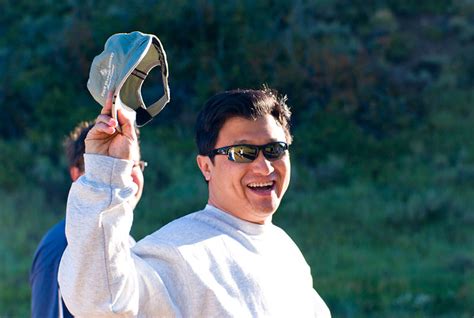A Quote by Jerome Powell
A risk-insensitive leverage ratio can be a useful backstop to risk-based capital requirements. But such a ratio can have perverse incentives if it is the binding capital requirement because it treats relatively safe activities, such as central clearing, as equivalent to the most risky activities.
Related Quotes
I have been in relatively high-risk businesses all of my adult life. Few of the others, however, had the possibility of direct gains in knowledge which this one had. I have confidence in the equipment, the planning, the training. I suspect that on a risk-gain ratio, this project would compare very, very favorably with those to which I've been accustomed on the past 20 years.
We regard using [a stock's] volatility as a measure of risk is nuts. Risk to us is 1) the risk of permanent loss of capital, or 2) the risk of inadequate return. Some great businesses have very volatile returns - for example, See's [a candy company owned by Berkshire] usually loses money in two quarters of each year - and some terrible businesses can have steady results.
To laugh is to risk appearing a fool. To weep is to risk appearing sentimental. To reach out to another is to risk involvement. To expose feelings is to risk exposing your true self. To place your ideas and dreams before a crowd is to risk their loss. To love is to risk not being loved in return. To hope is to risk pain. To try is to risk failure. But risks must be taken, because the greatest hazard in life is to risk nothing.

































